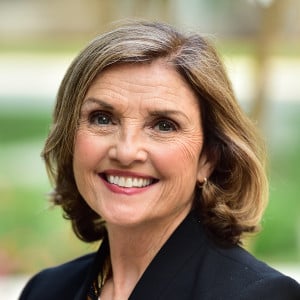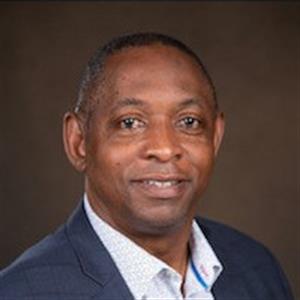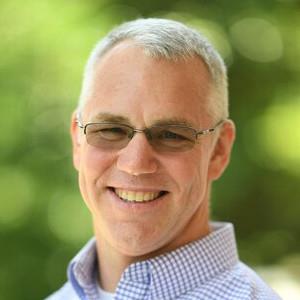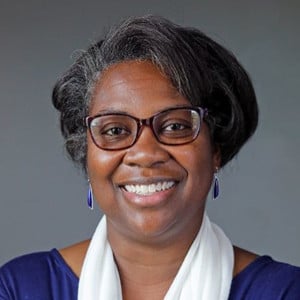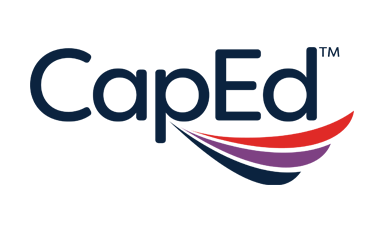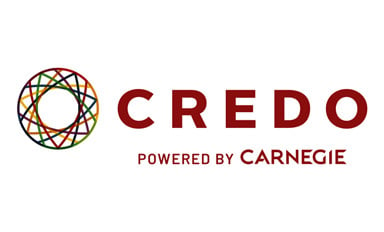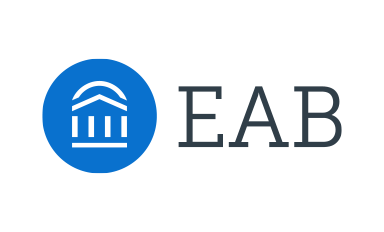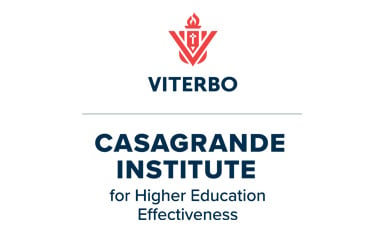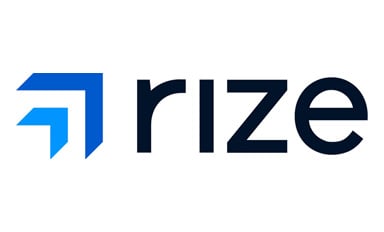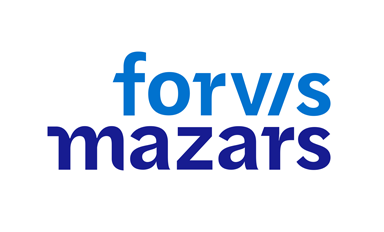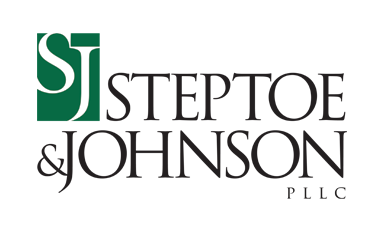Tenacious. Confident. Forward-Looking.
The 2022 Institute for Chief Academic Officers with Chief Financial and Chief Enrollment Officers will provide participants with the opportunity to engage with colleagues on timely and practical questions. After three years of an unpredictable pandemic that has tested everyone, we are ready to move forward with hope and bold optimism. This optimism is based on the core belief that collectively we can achieve much more than the sum of our individual efforts to support our students and advance independent higher education.
- What is so central to institutional excellence that it must be carried tenaciously into the future?
- What practices build confidence and deep collaboration within leadership teams and across key constituencies?
- How do leaders and leadership teams judiciously balance tenacity with innovation and flexibility to move their campuses forward?
Institutional and student success depend on effective teamwork among chief academic, financial, and enrollment officers. Working together, they align academic programs, business models, and student goals for sustainable and mission-centered excellence. This Institute will provide teams of campus leaders with ample opportunities to work together on specific institutional priorities. It will also offer occasions for them to network with counterparts at similar institutions to exchange examples, share good practices, and assess lessons learned.
A recent survey of CIC members showed that the top concerns of presidents and chief academic officers are financial sustainability; diversity, equity, and inclusivity; and using data to increase institutional effectiveness. This year’s Institute will feature sessions and tracks that explore how chief academic, financial, and enrollment officers can collaborate to advance each of these pressing priorities.
Join colleagues from across independent higher education at the Institute for inspiration and community. Participants will return to campus refreshed and energized to advance their institution’s top priorities—as tenacious, confident, and forward-looking leaders.
Who Should Participate?
In 2022, the Institute for Chief Academic Officers welcomes chief financial and chief enrollment officers. CIC is partnering with the American Association of Collegiate Registrars and Admissions Officers and the National Association of College and University Business Officers. Cabinet-level officers who lead the academic affairs, finance and administration, and enrollment management areas at their institutions are eligible to attend regardless of their specific titles.
Special pre-Institute workshops for new chief academic officers and for those in their third or fourth years of service will be of special interest to participants in those cohorts.
To encourage teambuilding, discounted fees are available to institutions that send multiple participants.
CIC membership is not required for registration; however, only independent college and university administrators may participate.
Featured Speakers
-

Mary B. Marcy
President Emerita, Dominican University of California
-

Mark D. Gearan
President, Hobart and William Smith Colleges
-

Robert S. Blue
Vice President for Finance and Administration, Centenary College of Louisiana
-

Glenn Getchell
Director of Admissions, Berry College
-

Anita Jones Thomas
Executive Vice President and Provost, St. Catherine University
-

Debbie Cottrell
President, Texas Lutheran University
Pre-Institute Workshops
Workshop for New Chief Academic Officers
Saturday, November 5
7:30 a.m.–4:00 p.m.
Chief academic officers who have served for fewer than two years are invited to participate in this workshop, led by experienced colleagues, that addresses issues that newer CAOs often face. Participants will work in small groups, analyze case studies, and discuss such topics as accreditation; assessment and institutional effectiveness; faculty governance and leadership; appointments, promotions, and tenure and its alternatives; managing time, technology, and paper; and working with peer administrators. Participants will be paired with an experienced CAO mentor.
Workshop Coordinators
Travis Frampton
Provost and Vice President for Academic Affairs, Schreiner University
Travis Frampton became provost and vice president of Schreiner University in Texas in 2019. He previously served Hardin-Simmons University as vice president for university mission and strategic vision and professor of religion. His scholarly work focuses on the history of biblical interpretation. In 2001–2002, he was a Fulbright Scholar in the Netherlands, where he studied early modern philosophy and hermeneutics at Erasmus University Rotterdam. He earned a PhD in philosophy from Erasmus University Rotterdam and a PhD in religion from Baylor University.
Lori Werth
Provost, University of Pikeville
Lori Werth is provost of the University of Pikeville in Kentucky, where she leads academic affairs, athletics, admissions, institutional research, student services, and student success, as well as the Kentucky College of Osteopathic Medicine and Kentucky College of Optometry. During her 25 years of higher education experience, she has served in a range of positions, including vice president for enrollment management, associate professor of education, and department chair. Werth has worked closely to develop new programs and maintain institutional accreditation. This past year, Werth was selected as a Fulbright Scholar to Japan, where she had the opportunity to learn about Japan’s education system as well as establish networks of U.S. and international colleagues.
Workshop for Chief Academic Officers in Their Third or Fourth Year of Service
Saturday, November 5
7:30 a.m.–4:00 p.m.
Entering the third or fourth year of service, chief academic officers usually have mastered the fundamentals of the role. At this stage, CAOs discover greater opportunities to lead rather than simply manage. What are the key questions CAOs can and should address at this stage in their careers? For example, how do CAOs balance attention to their institutions’ immediate issues with a focus on their long-term academic needs? How can CAOs attend to their own professional lives while also serving their institutions? How do CAOs work effectively with the president and other cabinet officers on strategic planning? Participants will explore these and related questions and gain fresh perspective on the next stage in their careers as CAOs.
Workshop Coordinators
Kimberly A. Coplin
Provost, Denison University
Kimberly A. Coplin is provost of Denison University in Ohio. Under her leadership, and with faculty approval, the university has launched innovative academic majors in global commerce, data analytics, journalism, and health, exercise, and sport studies; concentrations in financial economics and Middle East and North African studies; and the Denison Seminars program. Coplin joined Denison, her undergraduate alma mater, in 1993 as a faculty member in the department of physics and astronomy and served the university as both department chair and associate provost before being named to her current position in 2013. Her research interests include experimental condensed matter physics, with a focus on novel electronic materials and in the biophysics of human movement.
John D. Kolander
Provost, Wisconsin Lutheran College
John D. Kolander, provost of Wisconsin Lutheran College, has served as the college’s chief academic officer since 2004. Previously, he was a teacher and administrator for Lutheran elementary and high schools in Wisconsin and Minnesota. Kolander’s research interests include campus and organization culture, curriculum development, and leadership development. He is a frequent presenter at CIC’s Workshops for Department and Division Chairs and Institute for Chief Academic Officers and received the CIC Chief Academic Officer Award in 2018.
Discussion Facilitators
Lauren Bowen, Provost, Juniata College
Daryll Coleman, Vice President for Academic Affairs, Lane College
Richard Ice, Provost, College of Saint Benedict/Saint John’s University
Michael W. Markowitz, Vice President for Academic Affairs, Felician University
Lisa Perfetti, Provost, The College of Wooster
Constance Rogers-Lowery, Provost and Senior Vice President for Academic Affairs, Catawba College
Jeff Rutenbeck, Provost and Senior Vice President for Academic Affairs, Arcadia University
Contact Information
If you have registration questions, contact CIC by phone at (202) 466-7230 or by email at conferences@cic.edu.
Chief Academic Officers with Chief Financial and Chief Enrollment Officers Task Force
(as of September 15, 2022)
The program of the 2022 Institute was planned with the assistance of CIC’s Chief Academic Officers with Chief Financial and Chief Enrollment Officers Task Force, along with representatives from NACUBO and AACRAO. Members include:
J. Andrew Prall, Vice President for Academic Affairs, Aurora University (Chair)
Christon Arthur, Provost, Andrews University
Robert S. Blue, Vice President for Finance and Administration, Centenary College of Louisiana
Andrew R. Bressette, Vice President for Enrollment Management, Berry College
Jeffrey Frick, Vice President for Academic Affairs and Dean of the College, Washington & Jefferson College
Kerry Fulcher, Provost and Chief Academic Officer, Point Loma Nazarene University
Julee Gard, Vice President for Administration and Finance, University of St. Francis (IL)
Glenell M. Lee-Pruitt, Provost and Vice President for Academic Affairs, Jarvis Christian College
Lisa Long, Provost and Vice President for Academic Affairs, Allen University
Lori Werth, Provost, University of Pikeville
Titi Ufomata, Senior Vice President for Academic Programs, CIC
Association Representatives
Tina DeNeen, Associate Executive Director, Meetings and Partnerships,
American Association of Collegiate Registrars and Admissions Officers
Randy Roberson, Vice President, Leadership Development, National Association of College and University Business Officers






